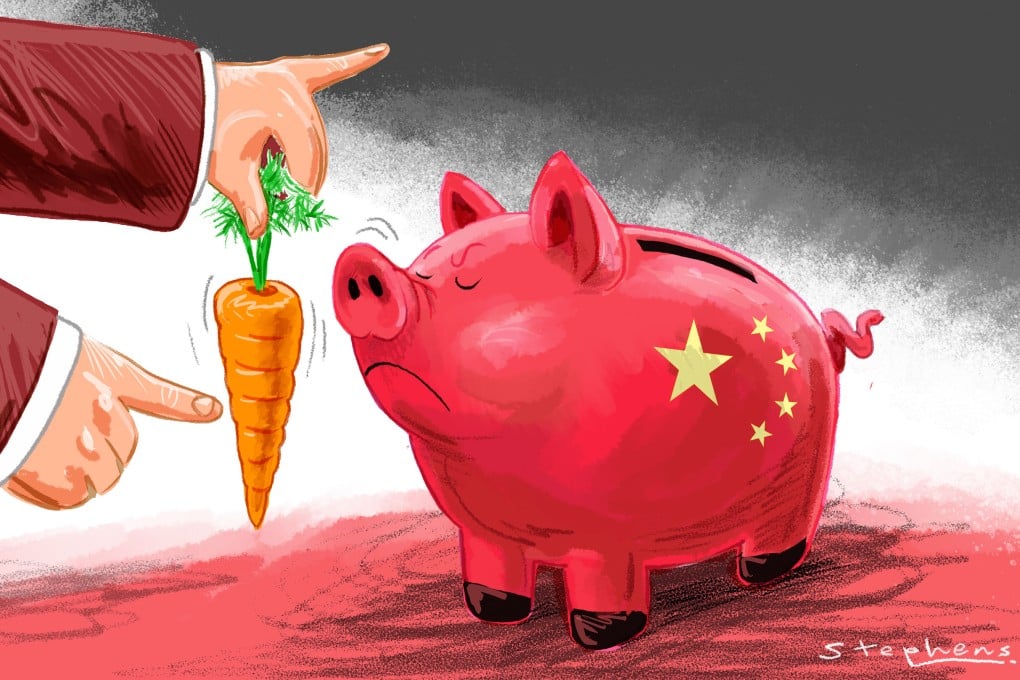Advertisement
Opinion | Until China changes its growth model, don’t expect any ‘revenge spending’
- As China prioritises exports and investments, the country’s stimulus measures have failed to adequately boost meek domestic consumption levels
- Unless leaders are willing to adopt radical solutions to boost confidence, consumers will continue to keep their wallets closed
Reading Time:3 minutes
Why you can trust SCMP
4

In 2021, when China further relaxed family planning controls by allowing couples to have up to three children, the major policy shift was expected to trigger a “revenge” baby boom.
In late 2022 when Beijing suddenly lifted zero-Covid controls, the authorities banked on post-lockdown “revenge spending” to drive economic growth.
Late last year, the government unleashed a series of extra rescue measures to stave off an acute property crisis, raising expectations of “revenge” growth in home purchases.
All those expectations have fallen flat. As one viral joke on China’s social media goes, “[Officials] thought we would seek ‘revenge’ but underestimated our compassion. We have already let go of grudges”.
The sarcastic joke serves as a vivid illustration of one of the greatest challenges for China’s leadership: how to get the country’s reluctant consumers to spend.
This has become a matter of high importance and urgency as the Communist Party’s Central Committee is scheduled to hold a long-delayed plenum in July to discuss a new growth model at a time of great uncertainties at home and abroad.

Advertisement
